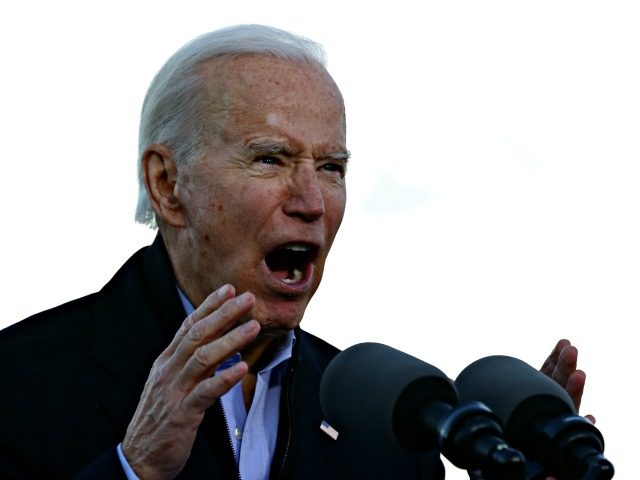The Biden administration’s failure to tackle high and rising inflation pushed consumer sentiment this month to its lowest level in a decade.
The University of Michigan’s final sentiment index fell to 67.4 during the month from 71.7 in October, according to data released Wednesday. That was a slight improvement from the mid-month reading and above the consensus forecast.
“Consumers expressed less optimism in the November 2021 survey than any other time in the past decade about prospects for their own finances as well as for the overall economy,” said Richard Curtin, the chief economist of the consumer survey. “The decline was due to a combination of rapidly escalating inflation combined with the absence of federal policies that would effectively redress the inflationary damage to household budgets.”
Both the indicators of current conditions and expectations for the future declined sharply.
While inflation in the spring and early summer was initially concentrated in just a few products suffering from acute supply chain shortages, it is not spread broadly through the economy and consumer pain is widespread. One-in-four consumers said inflation has eroded their standard of living, according to Curtin.
“Rather than gradually easing along with diminished shortages, complaints about falling living standards doubled in the past six months and quintupled in the past year. Consumers anticipated declining inflation-adjusted incomes, and expected spending cutbacks due to rising inflation to slow the pace of growth in the national economy in the year ahead,” Curtin said.
That might not weigh on holiday spending. Curtin said that consumers have a strong desire to return to prepandemic normal holiday gatherings with friends and family. As well, they plan on spending accumulated savings on gifts and celebrations despite higher prices.
Curtin warns that time is running out to contain inflation.
The real transient issue is the rapidly closing window when effective policy actions can be accomplished by very modest nudges in interest rates and regulations.At present, consumers still expect inflation to revert to a much lower level over the next five years, but that anchor has begun to yield ground: long-term inflation expectations rose by 0.5 percentage points in the past year, to 3.0 percent in November. If expected long-term inflation continues to accelerate in the first half of 2022, it will make its containment more difficult, and even more so, if the rise continues into the last half of 2022. Moreover, a protracted inflationary period will bring a renewed urgency for expanding government relief payments from job losses to cover inflationary declines in living standards. There will be no more compelling precedent for consumers that the 5.9 percent inflationary adjustment in Social Security payments that will start in January 2022.
On Tuesday, President Joe Biden announced plans to fight inflation by releasing 50 million barrels of oil from the strategic reserves and investigating fuel companies for alleged anticompetitive. The price of oil rose 3.3 percent.

COMMENTS
Please let us know if you're having issues with commenting.